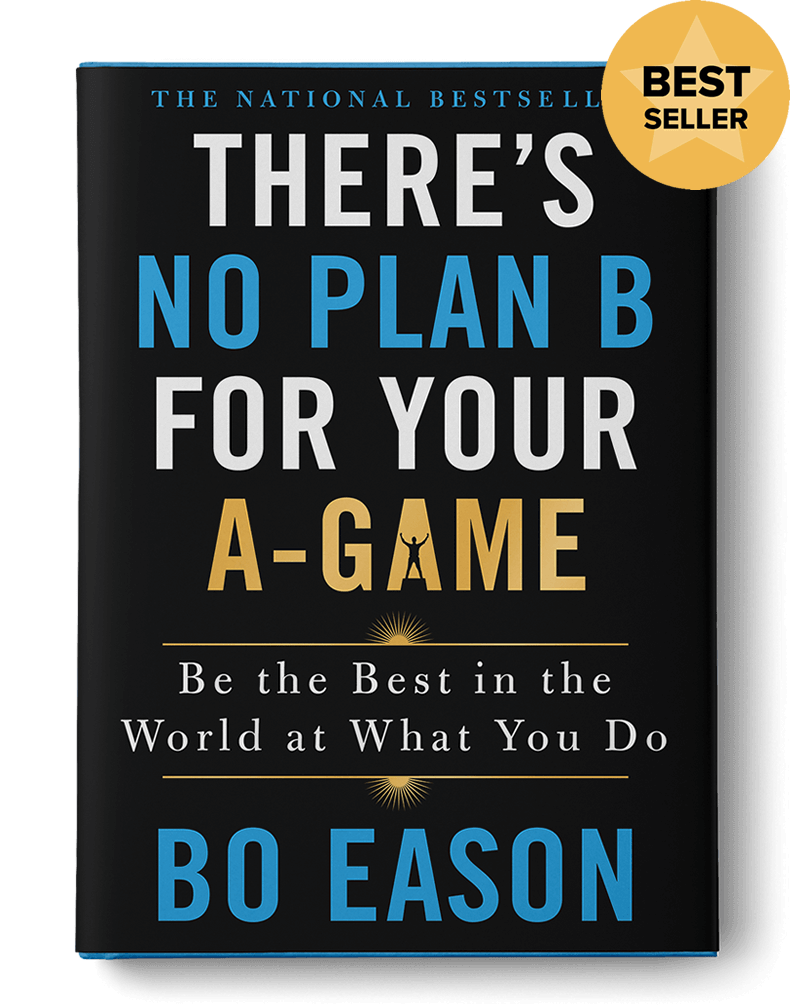Dawn: I think it’s really interesting to think about how you and your brother grew up in this small farming community. Your goal to play football was all you really had to focus on. We have these three amazing kids who are so fortunate to grow up the way they’re growing up because we’ve created that for them. But how do you create that drive, that intensity and that hunger when they’re kind of living in paradise. I think that a lot of parents from our generation that have succeeded are asking, “How do we make them hungry? How do we make them fight?” It’ll be interesting to see if we’re able to create that for our children by some of the things that we do with them.
Bo: In the book The Goldmine Effect Rasmus Ankersen calls it Hunger in Paradise. He doesn’t claim to have the answer. There are so many parents, like us, who didn’t necessarily have everything growing up so it made us hungry and it made us work hard. And now we’ve worked so hard that our kids do have access to things we didn’t. How do you create hunger in paradise? In The Gold Mine Effect, Ankersen says he who can come up with the answer to that question … that’s the billion-dollar question. You and I wrestle with this every day because our kids have access. They can pretty much have what they need to have.
Dawn: One of the things you really helped me with—and I don’t think it really occurred to me ever until this moment happened—but our son was playing in a basketball game and he had a really, really bad game. He was so upset he wouldn’t go shake the other kids’ hands. I don’t even think you were at the game. I was rushing after him in the school and I’m trying to get him to go back to the basketball court. I’m telling him he’s got to go be a good teammate and say “thanks” to the other team. He would not look at me. He had tears in his eyes and he was just gone. We ended up in some classroom on the other side of the school. I’m telling him, “It’s okay. You were great.” I didn’t know what else to say. Later when I was explaining what happened to Bo, he said, “You know what? You can’t rescue him. Those moments are going to make him better and want it more and work harder. You can’t rescue him from those feelings.” We all think we need to rescue our kids from those feelings and those hard times and set things up just right for them so they don’t ever have to feel that way. It’s so hard to stay out of it and not do that. And, you know, I grew up more privileged, but I had so many failures. I was acting and model at age 12, and was sent home from photo shoots with people telling me I wasn’t tall enough or I had too many pimples on my face. That experience is what started to teach me that I had to be resilient and strong and fight and never give up. I don’t know that it mattered how much I was given as a child from my parents or if it was just the circumstances and learning how to fight the adversity. So that’s probably the answer—maybe I’m the one with the answer to that billion-dollar question. Maybe it’s adversity.
Bo: That’s something we hear from a lot of parents, right? Parents always come to us and say, “How do you teach your kids to have that grit? And our kids seem to have that grit. So what are we doing that’s helping them or benefitting them in that way? I think the one thing, for sure, is we don’t acknowledge them at being great at something. We acknowledge the hard work that it takes. So we don’t say, “Hey, you’re really smart in school.” We say, “Hey, you really worked hard for that grade.” Or “you really worked hard for that championship. You earned that.”
Dawn: And then they also see us working hard too. Everyone always says they don’t do what you say; they do what you do. And we definitely are committed, work together, never give up and always thinking about what’s next. They definitely see that and are a part of that and I think they’re going to be better for that.
Bo: You’re right they don’t do what you say, no kids do. But they definitely do what you do. So we train, we work hard. They see it. They do it. I think being an example of what you want them to be; you have to be that too. You can’t just tell them, “Hey, be this.” They’re not going to do it. If you work hard, they’re going to work hard. If you eat right, they’re going to eat right, for the most part.

